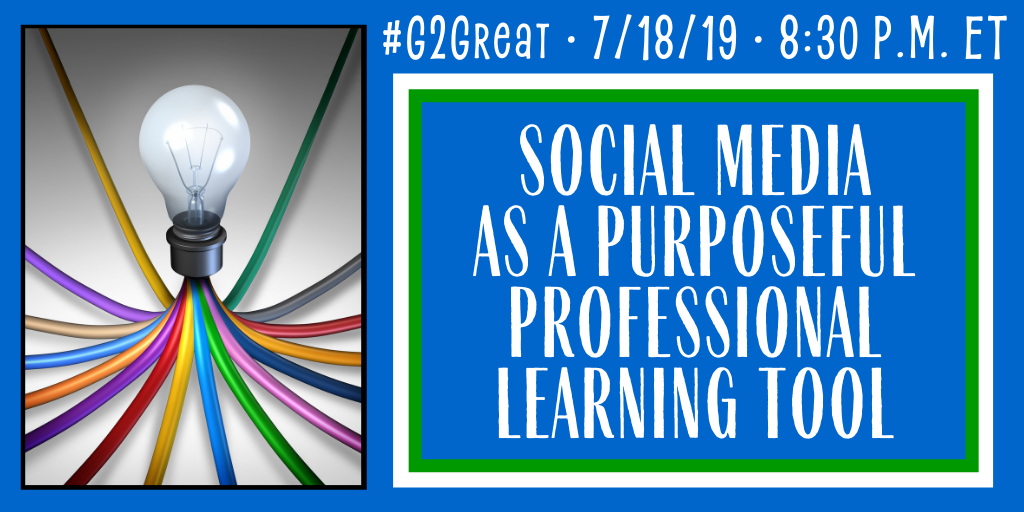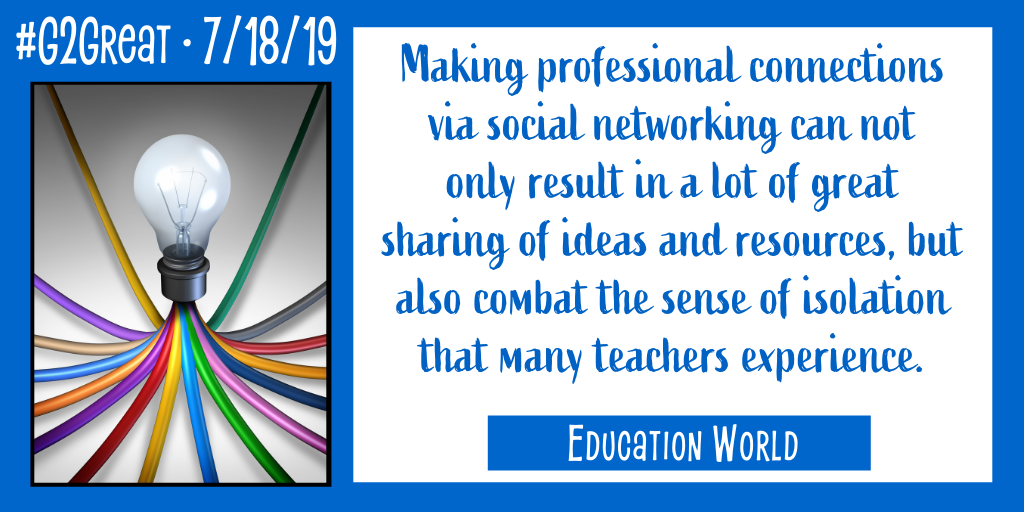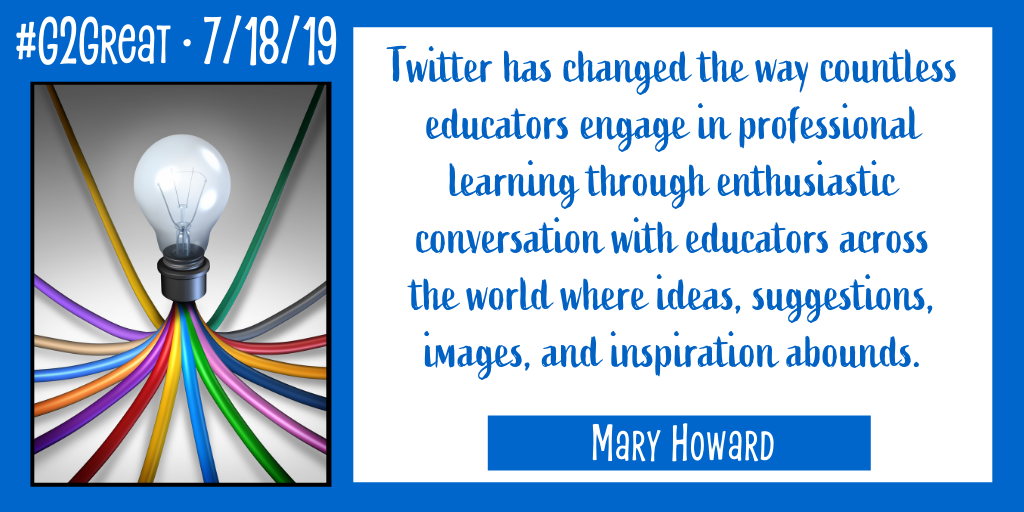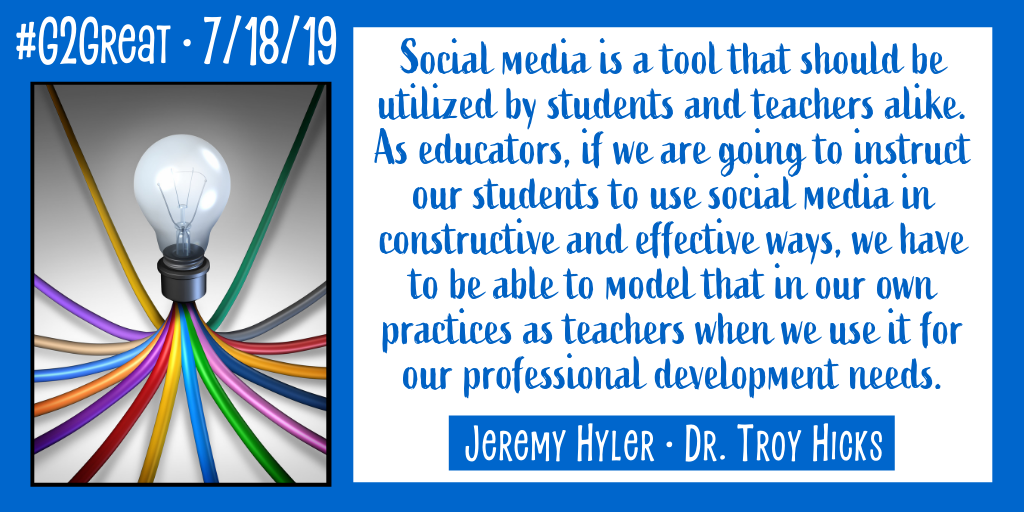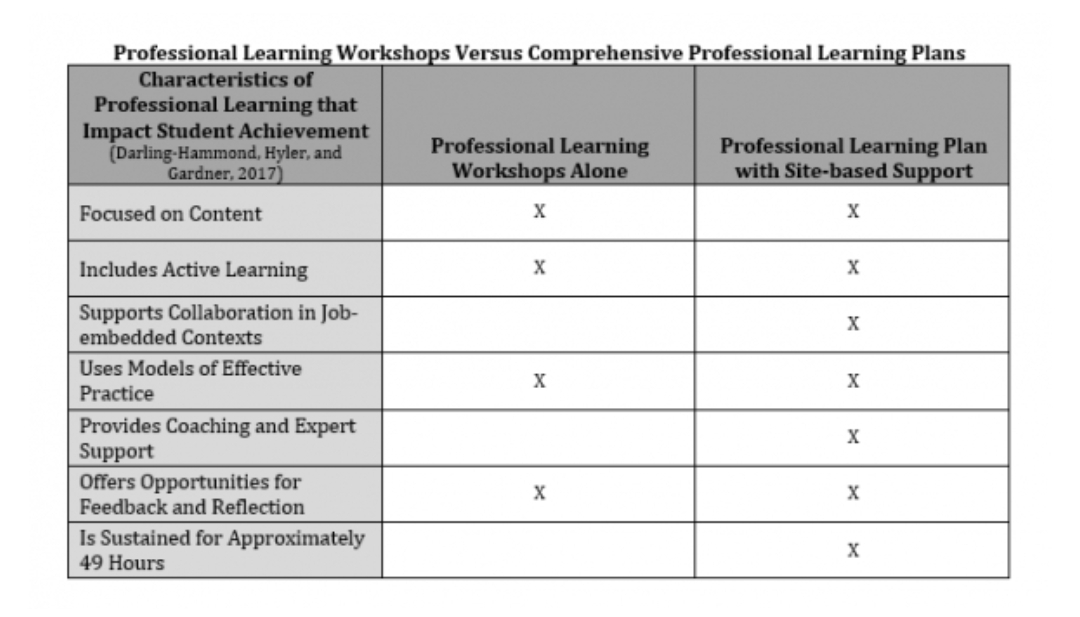On July 18, 2019 the #G2Great Twittersphere was filled. Folks came from:
Iowa,
Oklahoma,
Texas,
New York,
Alberta, Canada,
Minnesota,
California,
Indiana,
Missouri,
Massachusetts,
Michigan,
New Brunswick, Canada,
Ohio,
Nebraska,
Kentucky,
Virginia,
(and I apologize for any that I missed that you will find in the Wakelet here). Educators, teachers, administrators, coaches, college and university instructors, authors, readers, writers, and consultants. A Twitter chat about social media as a purposeful professional learning tool.
The chat opened with this quote.
Making professional connections, sharing ideas and resources and combating isolation were reasons shared by participants as evidenced in the following tweets from educators in 14 states and two provinces in Canada. These ideas were supported by the original book study chat #G2Great. Reducing teacher isolation is a common recurring theme.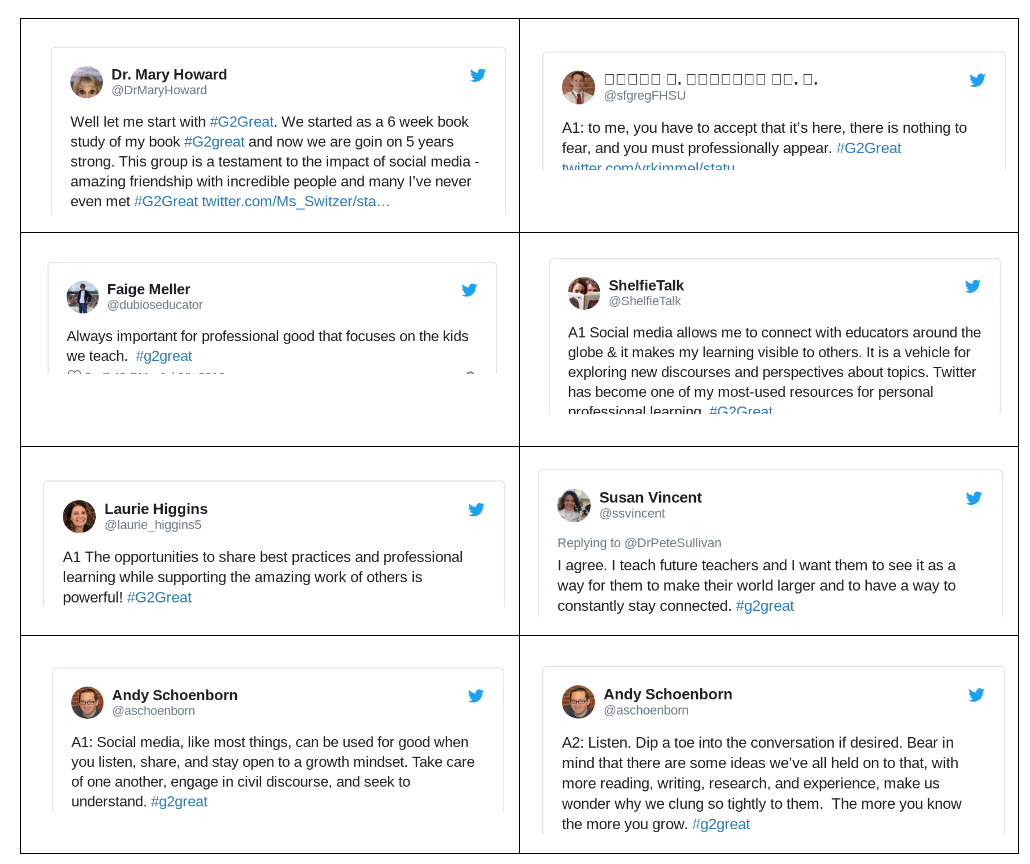
One huge piece of social media is Twitter. Folks on Twitter know that they can find much good with a focus on following those individuals who add to professional expertise. They are enthusiastic. They share resources. They meet regularly and share ideas, suggestions, images and inspiration. But they also don’t live in a land of fairy tales. Dialogue results in sharing opinions and views. Sometimes data supports those opinions and views. Sometimes theoretical information supports the premise of the disagreement. Sharing information doesn’t always change opinions, but open and honest communication is strengthened by on-going dialogue.
A great deal of the tweets in this social media chat focused on the good that we the #G2Great users have found on social media. Not all of Twitter is a bed of roses. Many of us have had our share of questionable or even unpleasant social media instances. However, when the goal is civil discourse with responsible sharing of our thoughts and ideas, social media connects a world of ideas and a world of possibilities that reduce isolationism no matter where you live on Earth. Productive use of social media tools allows users to conduct research, reach out to experts, and ask questions. And these tools also allow people to express themselves, share their work, and get feedback and encouragement. Therefore, social media promotes active citizenship and should be encouraged. Productive social media use MUST be modeled, taught and used by students, teachers, and administrators.
Where should you begin?
Choose one . . .
Voxer
and then to borrow from Andy Schoenborn above . . .”Listen. Dip a toe into the conversation . . .”
Start small. Pick one idea or topic.
What do you want to learn?
What do you want to chat about?
The depth of your learning is set by you, your current knowledge and your goals. This “depth” can also be relative to your social media professional learning. In a 2017 study “Effective Teacher Development” as reported here, Linda Darling-Hammond, Maria E. Hyler, and Madelyn Gardner, propose that six criteria need to be met in approximately 49 total hours for sustainable, difference-making professional learning that impacts student achievement. Webinars, google docs, twitter chats, and Voxer groups could easily meet these requirements with a planned, cost-effective and efficient delivery system that would also reduce teacher isolation.
